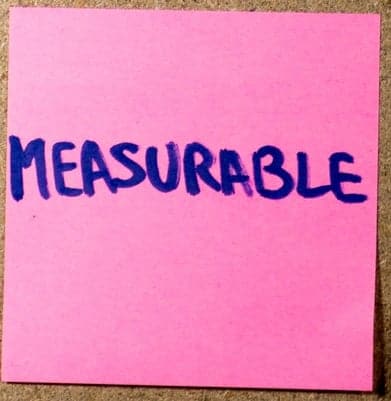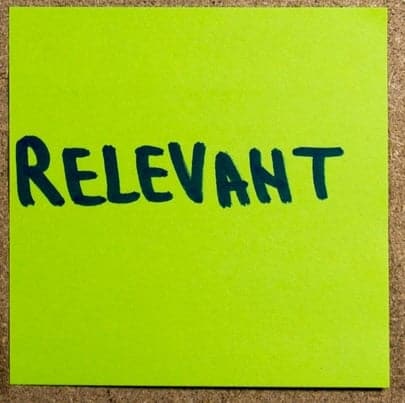
Creating SMART Business Objectives or Business Goals
When creating business objectives or business goals you should always make them SMART. SMART is an acronym for Specific, Measurable, Attainable, Relevant, Timebound.
In this short guide I will explain each element of SMART, why you should use the SMART framework and some examples of SMART Objective or Goals.
What are SMART Objectives?


Specific
Your goal should be clear and specific, otherwise you won’t be able to focus your efforts or feel truly motivated to achieve it. When drafting your goal, try to answer these five questions:
What do I want to accomplish?
Why is this goal important?
Who is involved?
Where is it located?
Which resources or limits are involved?

Measurable
You can’t score an uncertain goal!
So make sure your business objectives or business goals can be measured. Otherwise, how will you measure your progress? How will you know when you’ve achieved it?
Having measurable targets will help you stay focused, motivated and get the thrill of achievement when you reach your target.
It’s important to have measurable goals so that you can track your progress and stay motivated.

Attainable
Your objectives or goals must be achievable and realistic, otherwise they’re just distant dreams or wishes and you’re just setting yourself up to fail.
Make sure the objective or goal is within your control or power. If it can change based on outside factors, plot the impacts and allow for these within your measures.
Make sure it’s realistic based on the available resources and constraints.

Relevant
The Business Objective or Goal must be relevant or worthwhile to you or anyone else involved. Otherwise, what’s the point?
The objective or goal must matter; the more it matters the more motivation and commitment it will receive.

Time-bound
Every Business Objective or Business Goal must have a deadline or target date to focus the outcome towards.
A date also gives the objective or goal priority when set alongside others.
Why Make Them SMART?
“Without using the SMART framework your Business Objectives or Business Goals will be more woolly than a Woolly Mammoth wearing a sheepskin coat!”
Seriously, using this framework ensure you’re setting good quality objectives and goals you can and will achieve. From years of experience of seeing why businesses don’t achieve their objectives or goals is because one of the elements wasn’t thought through or taken fully into account.
You must use all of the elements of SMART. Using this framework isn’t difficult to follow or hard to implement. So there’s no point compromising or trying to take short cuts. If you’re struggling with an element of the framework, this is a good indication your Business Objective or Business Goal is not SMART.
Examples of SMART Business Objectives Or Business Goals
Sales:
| Specific | Grow our online sales revenue on our “Acme Products” |
| Measurable | From £125k to £175 per month – sales revenue at month-end from management accounts, including returns and replacements |
| Attainable | By opening an ebay shop, Amazon Listings, Facebook Market place and increasing Google Adwords spend |
| Relevant | This is a part of our strategic plan to increase sales for all product lines to £300k per month |
| Timebound | By April 20XX – 18 months time |
Production:
| Specific | Reduce product replacement of ‘Acme Products’ |
| Measurable | From £2.5k to £0.5k of product sales per month – taken from the month-end management accounts |
| Attainable | By improving the manufacturing process through training, using better component parts of X and implementing two additional quality checks during the process. |
| Relevant | This is a part of our strategic plan to increase sales for all product lines to £300k per month |
| Timebound | By December 20XX – 15 months time |
People:
| Specific | Increase the staff satisfaction score |
| Measurable | From an average of 75% to 90% using the Staff Satisfaction index measured over three consecutive months |
| Attainable | By implementing the agreed outcomes of the staff survey, increasing team events and feedback, increasing one-to-ones and management communications |
| Relevant | This is a part of our strategic plan to increase headcount from 120 to 150 by April 20XX. We want to reduce staff turn-over for good staff and recruit from team recommendation |
| Timebound | By April 20XX for surveys Jan-April |

